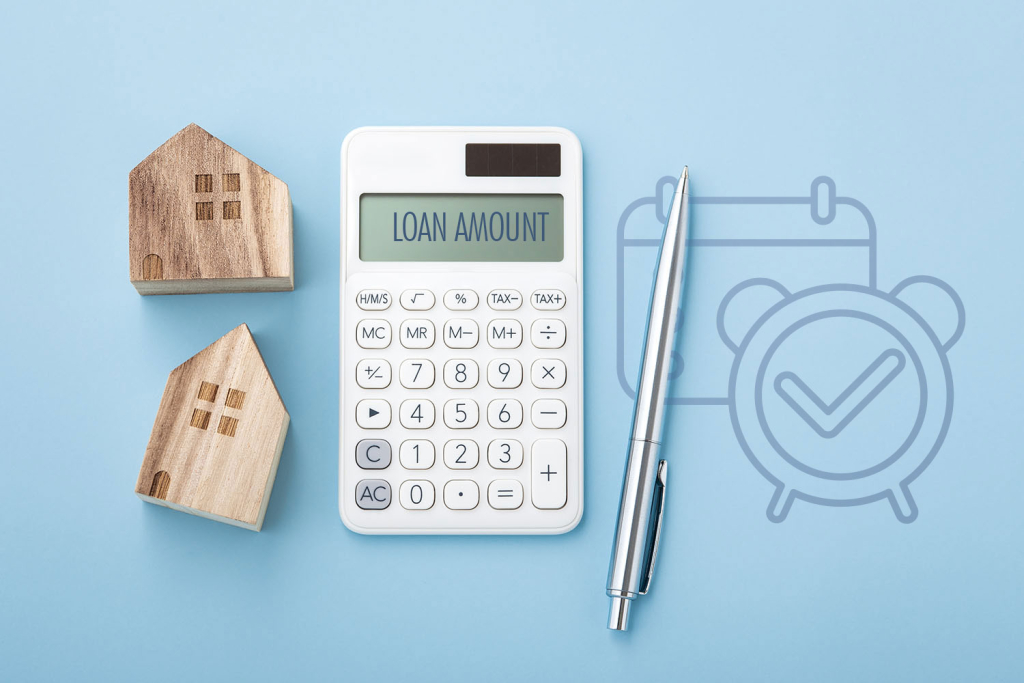Mortgage refinancing versus home equity loans: What’s the difference and which is the best option?
First comes home ownership — a major life goal for most Canadians — then comes home improvements.

When the time comes for that major reno or addition, most people don’t have what they need in savings or other sources. The home itself, though, is a valuable source of funds, whether for home improvements or other life events.
About 19% of homeowners refinanced their current mortgage to fund home improvements and renovations, according to the 2023 CMHC Mortgage Consumer Survey, while 24% refinanced to consolidate debt and 8% did so to finance the purchase of an investment rental property.
Refinancing your mortgage allows you to replace your existing mortgage with a larger one—and get access to take out the difference between the two in a lump of cash, while a home equity loan or home equity line of credit (HELOC) allows you to access cash without changing the terms of your existing mortgage and interest rate. More than 3 million Canadians have a HELOC, according to the Financial Consumer Agency of Canada, with an average remaining balance of $70,000. In 2016, outstanding HELOC balances reached $211 billion.
Knowing which financing option is right for you can be tricky if you’re looking to consolidate debt or leverage equity in your home. We examine mortgage refinancing, HELOCs and home equity loans and suggest which circumstances they’re best suited to so you can make the right decision.
Similarities between mortgage refinancing and home equity loans
Mortgage refinancing, home equity loans and HELOCs have a fair amount in common: they’re all loans secured against your home.

That means if you fall behind in your payments, the lender could force the sale of your home to pay the debt.
- Mortgage refinancing allows you to consolidate debt or access the equity in your home to fund a large expense and, if the timing is right, take advantage of dropping interest rates.
- A home equity loan has a fixed payment, a fixed or variable interest rate and a defined repayment period.
- A home equity line of credit (HELOC) has a variable interest rate. You only pay interest on the outstanding balance, and any amount you pay off becomes immediately available to you again.
Additional fees may apply, please contact your advisor.
Let’s look at the pros and cons of each option
Mortgage refinancing vs. home equity loans: How is your loan amount determined?
The maximum amount your lender will provide depends on two calculations: gross debt service ratio and total service ratio.
The gross debt service ratio (GDS ratio) measures the proportion of your pre-tax income allocated towards housing-related expenses, such as mortgage payments, property taxes and utilities. Similarly, the total debt service ratio (TDS ratio) refers to all your debt obligations and extends beyond housing costs. It can include car and student loans as well as credit card debt. Keeping these ratios within acceptable limits is essential for favourable lending terms and financial stability.
In short, in the case of both mortgage refinancing and home equity loans, lenders want to be confident in your ability to repay your loan.
Financial institutions will also consider the home’s value compared to the loan amount (the loan-to-value ratio). Most will only lend a maximum of 80% of the home’s value (unless it’s for a home purchase, in which case they may go as high as 95%, but the buyer would have to take out mortgage loan insurance).
The pros and cons of mortgage refinancing vs. home equity loans
The main difference between mortgage refinancing and a home equity loan secured against your home is the loan is typically smaller and paid off much sooner than your refinanced mortgage.
The main disadvantage of mortgage refinancing vs. home equity loans and HELOCs is the lack of flexibility. You’re required to make regular interest and principal payments, usually every month or two weeks, until the mortgage is paid off. You do have the flexibility to pay more than the usual payment, up to a certain extent (typically between 15% to 20% extra per year).
The pros and cons of a HELOC
There are several key benefits to a HELOC compared to mortgage refinancing. One of its biggest draws is that it provides a rolling line of credit. Once you pay off an amount, that becomes immediately available to you again.

Some other advantages of a home equity line of credit vs. mortgage refinancing in Canada include:
- You can use the money for any purpose at any time.
- If you don’t borrow any available money, you won’t pay any interest.
- It’s highly flexible: you can pay off the monthly interest, the whole amount or anything in between.
- There are, however, a few potential downsides of a home equity line of credit vs. mortgage refinancing:
- It can be easy to rack up a lot of debt (remember that one-quarter of Canadian HELOC holders have borrowed over $150,000).
- It can take a long time to pay off without a solid plan.
- Interest rates are typically higher than mortgage interest rates.
- Interest rates are variable, so they could rise at any point, making budgeting more difficult.
What are the differences between a HELOC and a home equity loan? Learn more about that in the next section.
When a HELOC might be your best option:
When comparing a home equity line of credit vs mortgage refinancing, which is better if you’ll need access to reasonably large sums of money over a period of time? In this instance, a HELOC is usually the wisest option. You only have to apply for it once and can draw as much as you need, on numerous occasions, for any purpose. However, you should have a realistic plan to pay off what you owe; otherwise, your HELOC could become a substantial financial burden.
The pros and cons of home equity loans
What is a home equity loan, exactly? It’s similar to a HELOC in that it’s a loan secured to your home. However, unlike a HELOC, there’s a defined repayment period. This means you need to repay the debt in full within an agreed number of years. You’ll have regular (usually monthly or biweekly) repayment amounts, including principal and interest, much like your mortgage. This also makes home equity loans easier to budget for, as those amounts don’t tend to change.

What is a home equity loan’s main downside? It’s not as flexible as a HELOC, so you can’t avoid paying the monthly principal amount if finances are tight. Another disadvantage is paying interest on the total amount from the get-go. A crucial difference between mortgage refinancing and a loan secured against your home is that interest can be higher with a loan than with a mortgage.
When a home equity loan might be your best option:
If you’re certain you’ll be able to make the monthly payments, a home equity loan can be an excellent option to pay for one-off, big-ticket expenses, such as a wedding, kitchen renovations or even to pay off your high-interest credit card debt.
Discuss your options

If you’re still unsure which loan is right for you, an ACU financial advisor will happily discuss all the options. They’ll be able to help you figure out whether mortgage refinancing, a HELOC or a home equity loan will make the most sense for you.
Book an appointment online today. An ACU financial advisor can help you determine which borrowing option makes the most sense for you and help you with the application process. That’s money doing more.
Up Next
Celebrating the 10th anniversary of student-run credit union
Just over 10 years ago, a survey circulated at Winnipeg’s Technical Vocational High School. The results showed that students at the school, commonly known as Tec Voc, felt short-changed—they were…
Kilter Brewing Co. serves up craft beer and community connection in St. Boniface
Deep in the heart of St. Boniface, Kilter Brewing Company is a hidden treasure—an oasis for Winnipeggers to escape their day-to-day routines, enjoy craft beer and connect with their community….
How to use a mortgage calculator to budget better
Learn how to use ACU’s mortgage calculator to figure out how much mortgage you can afford, and what budget you should set before you start house hunting. A mortgage lender…







